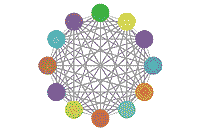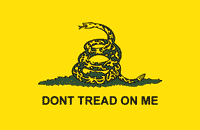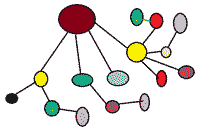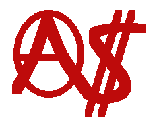
Federation
Why consider devolution of power?
Though we rarely pause to reflect on the matter, compared to the size of other materially rich nations, the United States is gargantuan. France would fit inside Texas. Germany could be swapped with Montana. California is not much smaller than Spain. Indeed, the United States is larger than all of the economically advanced countries taken together, after excluding Canada and Australia—nations with large, sparsely populated internal regions.
The United States is huge in other ways as well. In terms of population, for instance, the United States is very large and growing. The Census Bureau projects that the U.S. population will increase by nearly 100 million people by 2060, reaching almost 400 million in total around 2050. Economically, Social Security Administration projections indicate that the US economy will nearly double by midcentury, and have roughly twice the entire European Union’s current economic output.
How does one create a democratically responsive and participatory structure in a nation of such huge geographic, demographic, and economic magnitude? A number of concerns present themselves. As just one example, Harvard economist Alberto Alesina and Enrico Spolaore from Tufts University have explored the ways in which large nations systematically fail to meet the diverse needs of large populations. Size alone leads to concentrations of power that often leave distant areas unable to effectively compete in decision-making. Individuals in different geographic regions (close to or far from a capital where public investments are often concentrated, for example) or with different ideologies will opt for different goods, in different quantities.
Fortunately, free market capitalism solves these problems for society. The proper scale and the best processes of production would be favored in a freed market. There is no government czar planning from on high, just many customers choosing what is best for themselves. A free market is hyper-democracy - not winner take all, but everyone gets what they buy.
How might long term devolution to regional or local patterns
be organized through anarchist federations?
Anarchist federations, unlike a State, are organized from the bottom up. Thus, smaller groups would initiate a federation when such cooperation is necessary to solve some particular problem. But a federation is like fire - it can be dangerous. Many federations have become consolidated States over time. As Thomas Jefferson said, "The natural progress of things is for liberty to yield and government to gain ground." There must be mechanisms in place to address this "paradox of government." Pierre Proudhon gives his solution.
Federation, from the Latin foedus, genitive foederis, which means pact, contract, treaty, agreement, alliance, and so on, is an agreement by which one or more heads of family, one or more towns, one or more groups of towns or states, assume reciprocal and equal commitments to perform one or more specific tasks, the responsibility for which rests exclusively with the officers of the federation.
...
the federal system is the contrary of hierarchy or administrative and governmental centralization which characterizes, to an equal extent, democratic empires, constitutional monarchies, and unitary republics. Its basic and essential law is this: in a federation, the powers of central authority are specialized and limited and diminish in number, in directness, and in what I may call intensity as the confederation grows by the adhesion of new states. - The Principle of Federation
The main point of a federation is that any member may opt out without (uncontracted) penalty. Secessesion is not the only option. Nullification (local veto) is another option.
The necessary consequence of taking the sense of the community by the concurrent majority is, as has been explained, to give to each interest or portion of the community a negative on the others. It is this mutual negative among its various conflicting interests, which invests each with the power of protecting itself — and places the rights and safety of each, where only they can be securely placed, under its own guardianship. Without this there can be no systematic, peaceful, or effective resistance to the natural tendency of each to come into conflict with the others: and without this there can be no constitution. It is this negative power — the power of preventing or arresting the action of the government — be it called by what term it may — veto, interposition, nullification, check, or balance of power — which, in fact, forms the constitution. - John Calhoun, A Disquisition on Government
What are some on-the-ground developments that suggest possibilities for the future of federation?
Several issues have caused a new wave of nullification - local veto of more centralized decisions or decrees. At the state versus federal level, marijuana, firearms, and immigration have been the dominant issues. Twenty-six states and the District of Columbia currently have laws broadly legalizing marijuana in some form, directly violating federal law. On the local versus federal level, various "sanctuary cities" have effectively nullified immigration laws.
I suggest that there seems only one cause behind all forms of social misery: bigness. Oversimplified as this may seem, we shall find the idea more easily acceptable if we consider that bigness, or oversize, is really much more than just a social problem. It appears to be the one and only problem permeating all creation. Wherever something is wrong, something is too big. - Leopold Kohr, The Breakdown of Nations
Further reading:
Pierre Proudhon, The Principle of Federation (1863)
John Calhoun, A Disquisition on Government (1851)
Leopold Kohr, The Breakdown of Nations
Alberto Alesina and Enrico Spolaore, The Size of Nations (Cambridge, MA: The MIT Press, 2005).
Gar Alperovitz, “California Split,” The New York Times, February 10, 2007.
William Bennett Munro, The Invisible Government (New York, NY: Macmillian, 1928).
 Intro |
 America |
 Federation |
 Decentralization |
 Liberty |
 Culture |
 Money |
 Markets |
 Hogeye Bill's Anarchism Page |